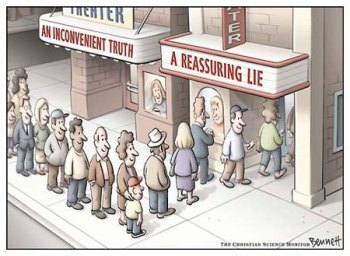From Lars Syll Axiomatic decision theory was pioneered in the early 20th century by Ramsey (1926) and de Finetti (1931,1937), and achieved remarkable success in shaping economic theory … A remarkable amount of economic research is now centered around axiomatic models of decision … What have these axiomatizations done for us lately? What have we gained from them? Are they leading to advances in economic analysis, or are they perhaps attracting some of the best minds in the field to deal with difficult problems that are of little import? Why is it the case that in other sciences, such as psychology, biology, and chemistry, such axiomatic work is so rarely found? Are we devoting too much time for axiomatic derivations at the expense of developing theories that fit the data? This paper
Topics:
Lars Pålsson Syll considers the following as important: Uncategorized
This could be interesting, too:
tom writes The Ukraine war and Europe’s deepening march of folly
Stavros Mavroudeas writes CfP of Marxist Macroeconomic Modelling workgroup – 18th WAPE Forum, Istanbul August 6-8, 2025
Lars Pålsson Syll writes The pretence-of-knowledge syndrome
Dean Baker writes Crypto and Donald Trump’s strategic baseball card reserve
from Lars Syll
Axiomatic decision theory was pioneered in the early 20th century by Ramsey (1926) and de Finetti (1931,1937), and achieved remarkable success in shaping economic theory … A remarkable amount of economic research is now centered around axiomatic models of decision …
What have these axiomatizations done for us lately? What have we gained from them? Are they leading to advances in economic analysis, or are they perhaps attracting some of the best minds in the field to deal with difficult problems that are of little import? Why is it the case that in other sciences, such as psychology, biology, and chemistry, such axiomatic work is so rarely found? Are we devoting too much time for axiomatic derivations at the expense of developing theories that fit the data?
This paper addresses these questions … Section 4 provides our response, namely that axiomatic derivations are powerful rhetorical devices …
‘Powerful rhetorical devices’? What an impressive achievement indeed …
Some of us have for years been urging economists to pay attention to the ontological foundations of their assumptions and models. Sad to say, economists have not paid much attention — and so modern economics has become increasingly irrelevant to the understanding of the real world.
 Within mainstream economics internal validity is still everything and external validity nothing. Why anyone should be interested in that kind of theories and models is beyond imagination. As long as mainstream economists do not come up with any export-licenses for their theories and models to the real world in which we live, they really should not be surprised if people say that this is not science, but autism!
Within mainstream economics internal validity is still everything and external validity nothing. Why anyone should be interested in that kind of theories and models is beyond imagination. As long as mainstream economists do not come up with any export-licenses for their theories and models to the real world in which we live, they really should not be surprised if people say that this is not science, but autism!
Studying mathematics and logic is interesting and fun. It sharpens the mind. In pure mathematics and logic , we do not have to worry about external validity. But economics is not pure mathematics or logics. It’s about society. The real world. Forgetting that, economics is really in dire straits.
Mathematical axiomatic systems lead to analytic truths, which do not require empirical verification, since they are true by virtue of definitions and logic. It is a startling discovery of the twentieth century that sufficiently complex axiomatic systems are undecidable and incomplete. That is, the system of theorem and proof can never lead to ALL the true sentences about the system, and ALWAYS contain statements which are undecidable – their truth values cannot be determined by proof techniques. More relevant to our current purpose is that applying an axiomatic hypothetico-deductive system to the real world can only be done by means of a mapping, which creates a model for the axiomatic system. These mappings then lead to assertions about the real world which require empirical verification. These assertions (which are proposed scientific laws) can NEVER be proven in the sense that mathematical theorems can be proven …
Many more arguments can be given to explain the difference between analytic and synthetic truths, which corresponds to the difference between mathematical and scientific truths … The scientific method arose as a rejection of the axiomatic method used by the Greeks for scientific methodology. It was this rejection of axiomatics and logical certainty in favour of empirical and observational approach which led to dramatic progress in science. However, this did involve giving up the certainties of mathematical argumentation and learning to live with the uncertainties of induction. Economists need to do the same – abandon current methodology borrowed from science and develop a new methodology suited for the study of human beings and societies.
